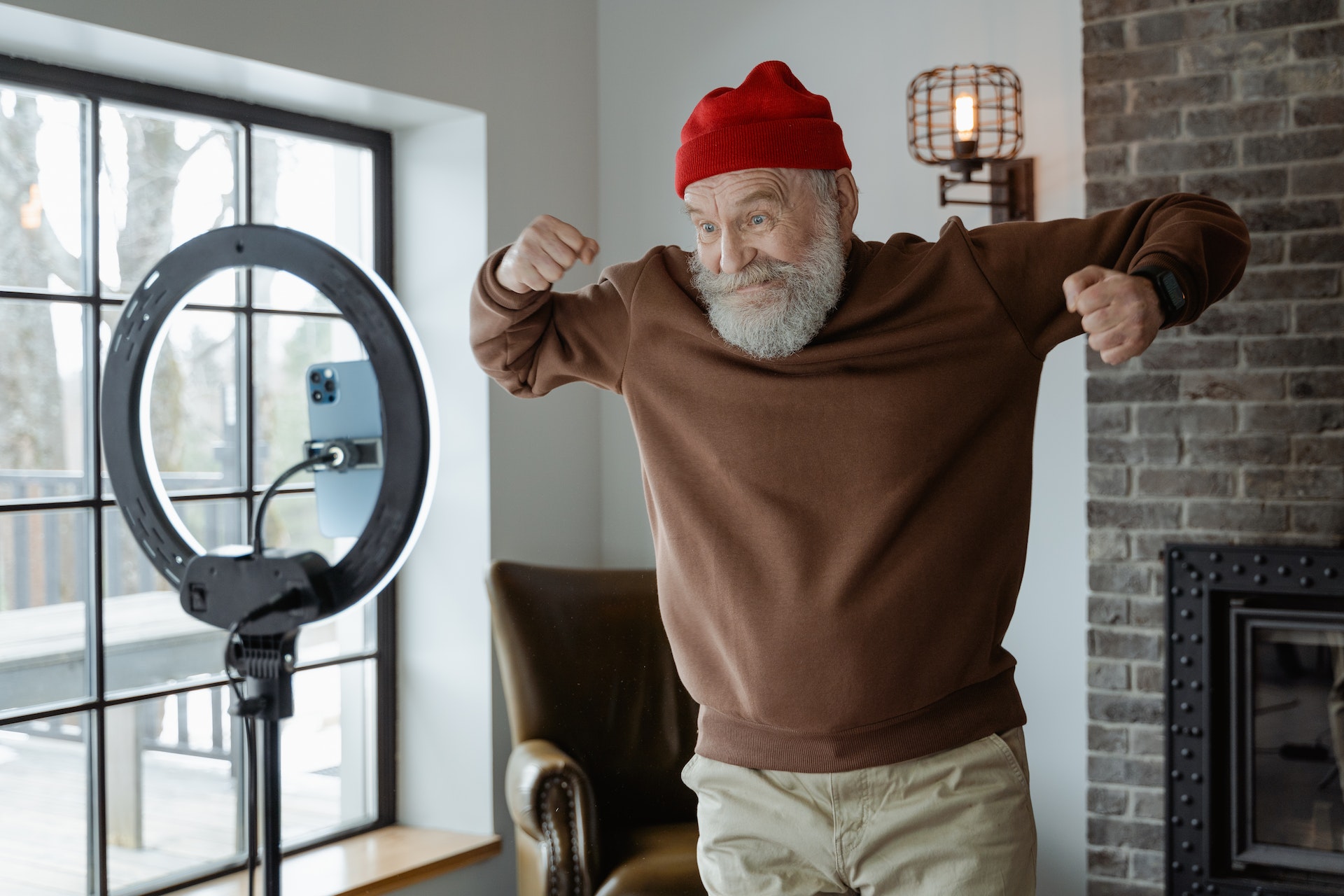

The promoting and media industries commonly belittle older Individuals, usually portraying them as fragile, needy or ineffective. Most ageist perceptions – usually held by youthful advert creators and others within the media – fall into 4 fundamental classes of stereotypes: bodily infirm, failing reminiscence, incompetence, and basic unpleasantness.
All 4 are misconceptions. Let’s take a look at why:
1. Bodily Infirm
It’s true that as we age, our our bodies don’t operate in addition to they did once we had been youthful – our energy typically declines roughly 1.5% per 12 months after we flip thirty![1] Nonetheless, that doesn’t imply most older adults can not carry out basic actions of each day residing. Higher than 80% of Individuals over 65 are wholesome sufficient to interact in regular on a regular basis actions. Moreover, 71% of males and 65% of ladies over 65 report no important practical limitations.[2] In brief, seniors as a cohort aren’t frail.
2. Failing Reminiscence
Simply as our our bodies don’t operate as effectively later in life, neither do our minds. However that’s to not say that seniors’ reminiscences are collectively failing. As a result of their minds are loaded with greater than a half-century of knowledge and reminiscences, seniors often require a bit of further time to recall particular data – however that data isn’t essentially misplaced. It’s simply buried – a bit of. Dementia and reminiscence loss are not regular components of ageing. In truth, solely 10% of adults over 65 years outdated endure from some type of dementia.[3]3.
3. Incompetence
Too usually, seniors are portrayed as dweebs, not capable of carry out lots of the psychological and bodily duties essential to navigate trendy life. Once more, just like the bodily infirm and failing reminiscence misconceptions, there’s a grain of reality that older adults aren’t as mentally acute as they as soon as had been. As we age, our working reminiscence does the truth is decline.
The “working reminiscence” is the a part of your mind that shops, organizes and manipulates data – and it’s integral to mind features like studying comprehension, problem-solving, mathematical computation or following instructions. It’s how we use the knowledge in our brains.
Declining working reminiscence may be manifested in an older particular person’s functioning in a wide range of methods, making it harder to multi-task, in addition to making it tougher focus and take care of distractions.
All this offers fodder that may create misperceptions about seniors’ basic psychological competence, despite the fact that most seniors acuity stays sturdy. They only make choices a distinct manner, normally drawing from their in depth life expertise.
4. Unpleasantness
Everybody has encountered “grumpy outdated males” (and ladies). They’re perceived as tough, rigid, grouchy and bitter. And that is a picture of older adults that’s usually portrayed in promoting and sit-coms, normally in an try and be humorous.
Nonetheless, there are additionally a number of research that attain a opposite conclusion, discovering that folks usually understand older adults as heat, good-natured, reliable, and honest. However this extra complimentary depiction of the aged doesn’t line up with picture of older adults that’s usually portrayed. Merely said, the aged are commonly depicted as disagreeable with a purpose to make them the brunt of ageist jokes.
So, let’s recap:
- Analysis assures us most seniors are typically not infirm.
- Most seniors haven’t suffered reminiscence loss to a big extent.
- Psychological acuity stays sturdy amongst most seniors.
- Most seniors are typically heat and good natured.
But, the media and promoting industries proceed to perpetuate these misconceptions, using them to make enjoyable of older adults as tried humor.
It has been stated, ageism is the final type of prejudice that’s nonetheless acceptable in society. Till there may be significant pushback from shoppers – and never simply the seniors – ageism in promoting and different types of media will proceed.
[1] Francis Spirduso, Bodily Dimensions in Growing older, 2005
[2] Wholesome Individuals, 2020
[3] Sandee LaMotte, 1 in 10 Individuals over 65 have dementia, research finds, CNN, 2022

